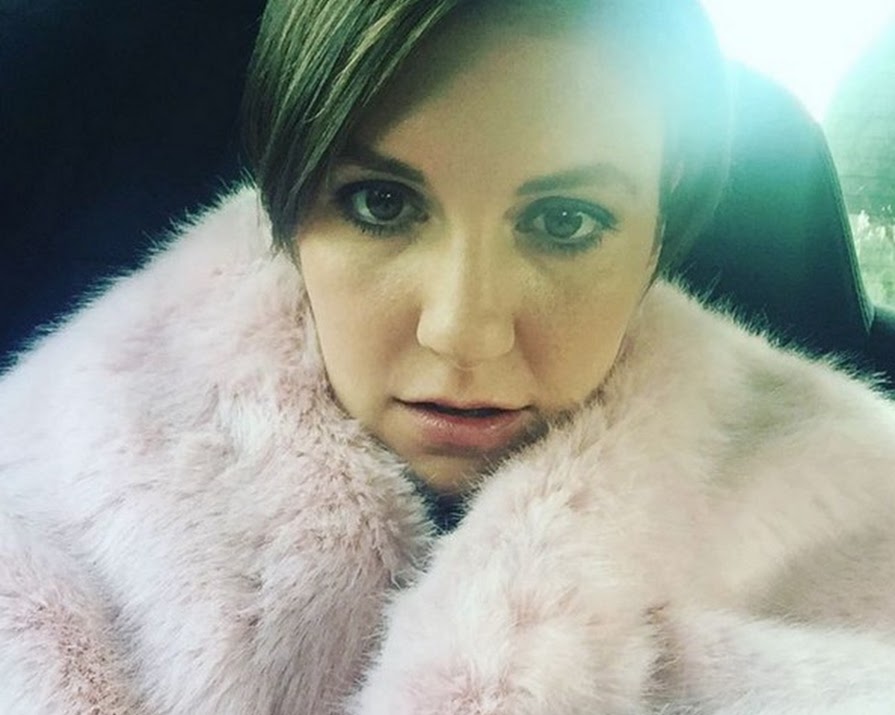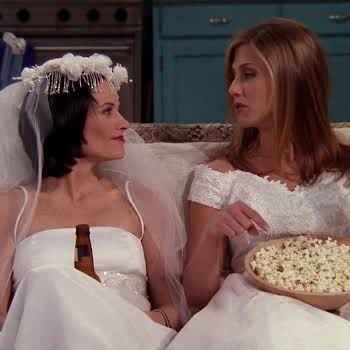
By Jennifer McShane
24th Jan 2016
24th Jan 2016
Many a word has been used to describe writer and actress Lena Dunham. A phrase frequently used is “polarising,” thanks in large part to the candour and general nakedness exhibited in her hit show, Girls, as well as individual stories she’s told in her various writings. It’s true that, as she once said, the more conservative type may not deem her a fitting role model, but she has inspired this generation of millennials in the best way possible. Dunham is an advocate not only when it comes to being yourself, but also for all things surrounding mental heath. She has used her place in the public eye to shed a positive light on health issues that are largely stigmatised, such as anxiety and now anti-depressants.
The Girls star has openly said she’s been taking this medication since she was a teen, but this weekend took to social media to speak out about the negativity she feels still surrounds the process.
“Lately, I’ve been noticing that nearly every pop cultural image we see of a woman on psychiatric medication is that of an out-of-control, exhausting and exhausted girl who needs help,” she wrote on Instagram.
“But guess what? Most women on meds are women who have been brave enough to help themselves.”
She stressed that women on medication for their mental health should not be made to feel inadequate or ashamed. She also shared a snap of the pills she takes on the app.
“It’s important that we see normalising portrayals of people, women, choosing to take action when it comes to their mental health. Meds didn’t make me a hollowed out version of my former self or a messy bar patron with a bad bleach job. They allowed to really meet myself. I wish that for every lady who has ever struggled. There’s really no shame.”
And she is of course, correct. By reaching out,?you’ve taken the hardest step and asked for help in your journey, and hence’should feel supremely proud of doing so.
Avid readers of her work will know that Dunham has gone through various issues and felt the pressure to conform to societal norms, whether that means feeling she has had to look a certain way or that she is less competent in her work if she says “no”, for example.

We’re regularly made feel like it’s the worst thing in the world to say no, and that if we do, this won’t allow us to advance and so on. This is complete nonsense and Dunham?openly addressed this in an essay on LinkedIn, saying?her method to reducing stress in her daily life has been learning to make better use of the two-letter word.
“Work is, organically, a place of yes,” she wrote in the guest post. “Because I had so much shame about the private strings of unanswered texts, broken plans, re-made promises, at work it became my mission to answer every email no matter the hour, agree to every added task, finish the day off by reading a link sent by a colleague rather than a book for pleasure.”
“And for a while, it worked like a charm. A compliment like ?you’re the fastest email-er I know,? or ?how do you do so much at once?? was better than a romantic, sweet nothing to me. It fulfilled my desire to be seen as unsinkable, reliable. And in the deepest place, lovable. But we can only pull off a high wire act for so long before gravity does its job. The more my personal relationships suffered, the more I wanted to work,” she explained.
Soon, the term “no” entered her vernacular and suddenly, she began to enjoy’saying “Yes.”
?[I started to say] I can’t do it realistically by Friday,? or ?I wish I could be on that panel but my week is insane,? or even ?no, I’m not comfortable with this dynamic.? And something miraculous happened: my personal life followed suit. I can’t be at the birthday party. I don’t want to go to laser tag ever as long as I live. I am exhausted. People respond well to honesty, to reality. They understand. And so with those no’s, YES sprung back up everywhere.”

Read her full essay here.
Whether she cares to admit it or not, Dunham is an inspiration to women who may be?going through a struggle. She’s saying, reject the stigmas, be yourself, do whatever is best for you and learn to say “no”, every now and again. Frankly, we can’t think of better life advice to follow.
Lena Dunham: the unexpected hero and poster-girl for a generation. Oh, and please keep rocking those onesies.























